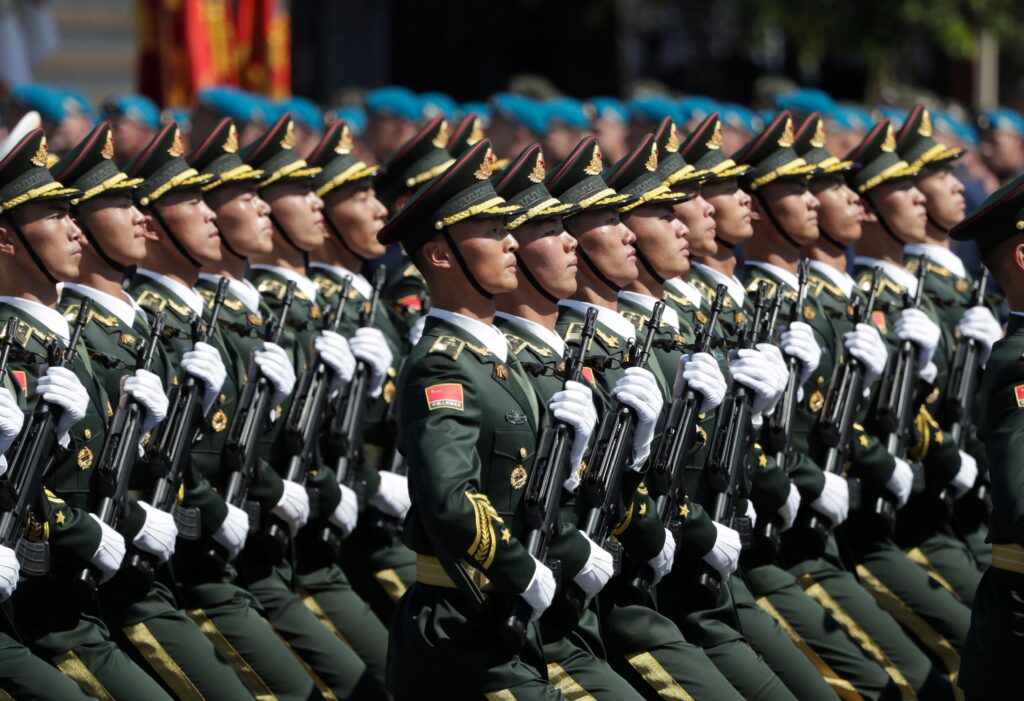In this article, we explore the significant role technology plays in military policy and defense budgets. From the ancient use of military technologies to the digital revolution, technology has continuously evolved and shaped military strategies and capabilities. It has enhanced offensive and defensive capabilities, revolutionized surveillance and reconnaissance with unmanned aerial vehicles (UAVs) and drones, and introduced new domains like cyber and space warfare. However, with technological advancements come challenges such as ethical implications and financial limitations. Governments must carefully consider these issues while allocating defense budgets and promoting international cooperation to prevent an unchecked global arms race. Ultimately, understanding the role of technology is crucial for creating effective and efficient armed forces in the 21st century.
Understanding the Role of Technology in Military Policy and Defense Budgets
Introduction
In the modern world, technology plays a crucial role in military policy and defense budgets. With advancements in science and engineering, the capabilities of military forces have drastically transformed, leading to more complex strategies and increased costs. In this article, we will delve into the various aspects of technology’s influence on military policy and defense budgets and understand its significance.
I. The Evolution of Technology in Military Policy
1.1 Early Use of Technology in Warfare
1.1.1 Ancient Military Technologies
1.1.2 Medieval Military Technologies
1.2 Industrial Revolution and Technological Advancements
1.2.1 Introduction of Firearms and Artillery
1.2.2 Communication and Transportation Technologies
1.3 Modern Era and the Digital Revolution
1.3.1 Automation and Robotics in Warfare
1.3.2 Information Sharing and Cybersecurity
II. The Impact of Technology on Military Policy
2.1 Enhancing Offensive and Defensive Capabilities
2.1.1 Precision Guided Munitions (PGMs)
2.1.2 Stealth Technologies
2.2 Unmanned Aerial Vehicles (UAVs) and Drones
2.2.1 Surveillance and Reconnaissance
2.2.2 Surgical Strikes and Targeted Killings
2.3 Cyber Warfare and Space-Based Technologies
2.3.1 Protecting Critical Infrastructure
2.3.2 Intelligence Gathering and Satellite Communications
III. The Role of Technology in Defense Budgets
3.1 Research and Development (R&D) Budgets
3.1.1 Investing in Cutting-Edge Technologies
3.1.2 Collaborations with Private Sector
3.2 Modernization and Upgradation Expenses
3.2.1 Acquiring Next-Generation Weapons Systems
3.2.2 Maintaining Technological Superiority
3.3 Cybersecurity and Information Assurance
3.3.1 Protecting Military Networks and Data
3.3.2 Countering Cyber Threats and Attacks
IV. Challenges and Considerations
4.1 Ethical Implications of Technological Advancements
4.1.1 Autonomous Weapons and Ethical Dilemmas
4.1.2 Accountability and Responsibility
4.2 Costs and Financial Limitations
4.2.1 Balancing Technological Investments and Operational Expenses
4.2.2 Allocating Resources Appropriately
4.3 Global Arms Race and Proliferation
4.3.1 Preventing Escalation and Maintaining Strategic Balance
4.3.2 Arms Control and International Cooperation
Conclusion
As technology continues to progress at a rapid pace, its role in military policy and defense budgets becomes increasingly critical. From ancient times to the modern era, technology has shaped the strategies and capabilities of military forces. It has enabled enhanced offensive and defensive capabilities, revolutionized surveillance and reconnaissance, and introduced new domains like cyber and space warfare.
However, while technology provides numerous advantages, it also poses challenges such as ethical concerns and financial limitations. Governments must carefully consider these issues while formulating military policies and allocating defense budgets. Additionally, international cooperation and arms control measures become imperative to prevent an unchecked global arms race.
Overall, understanding the role of technology in military policy and defense budgets is essential for creating effective and efficient armed forces that can adapt and respond to the complex security challenges of the 21st century.
